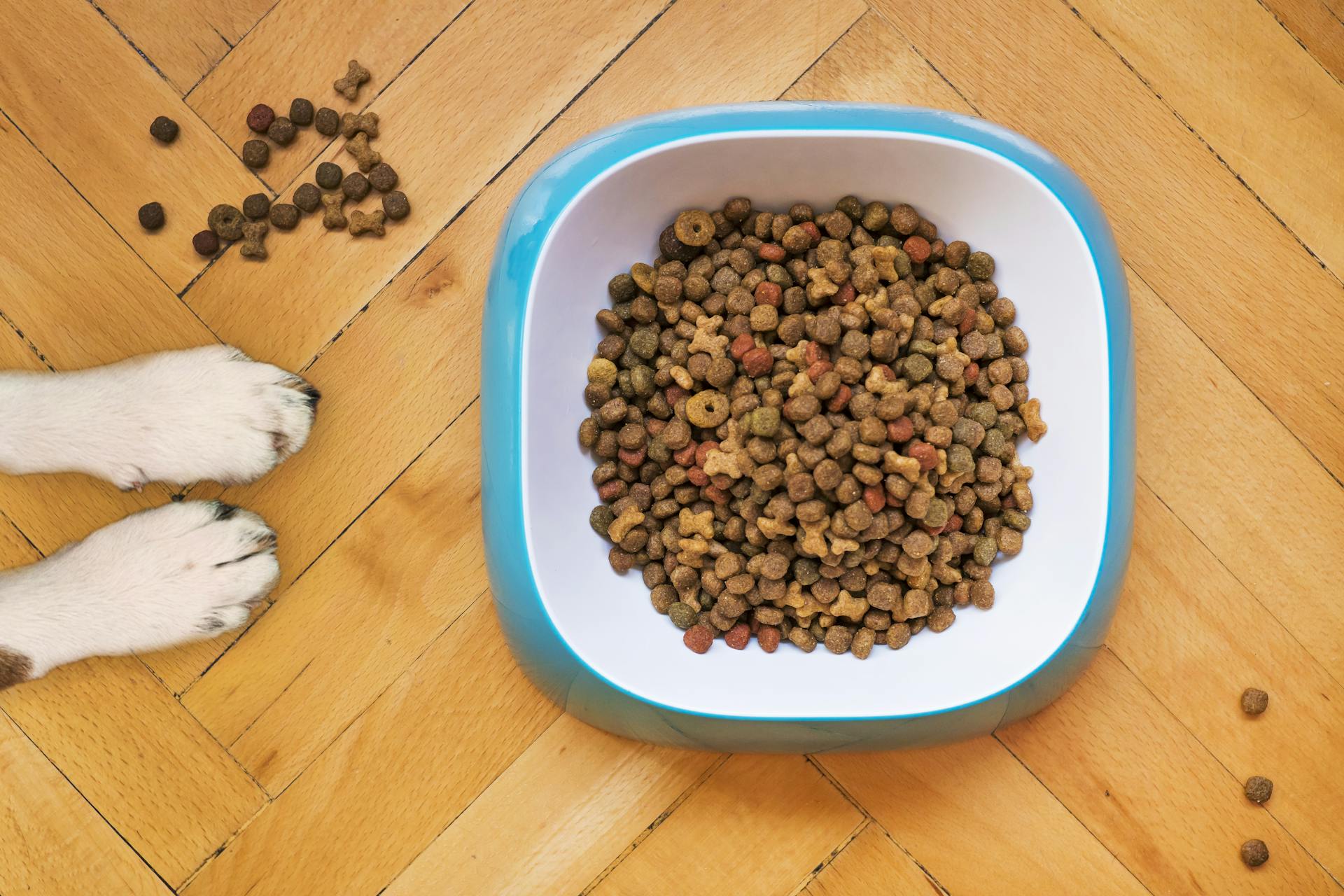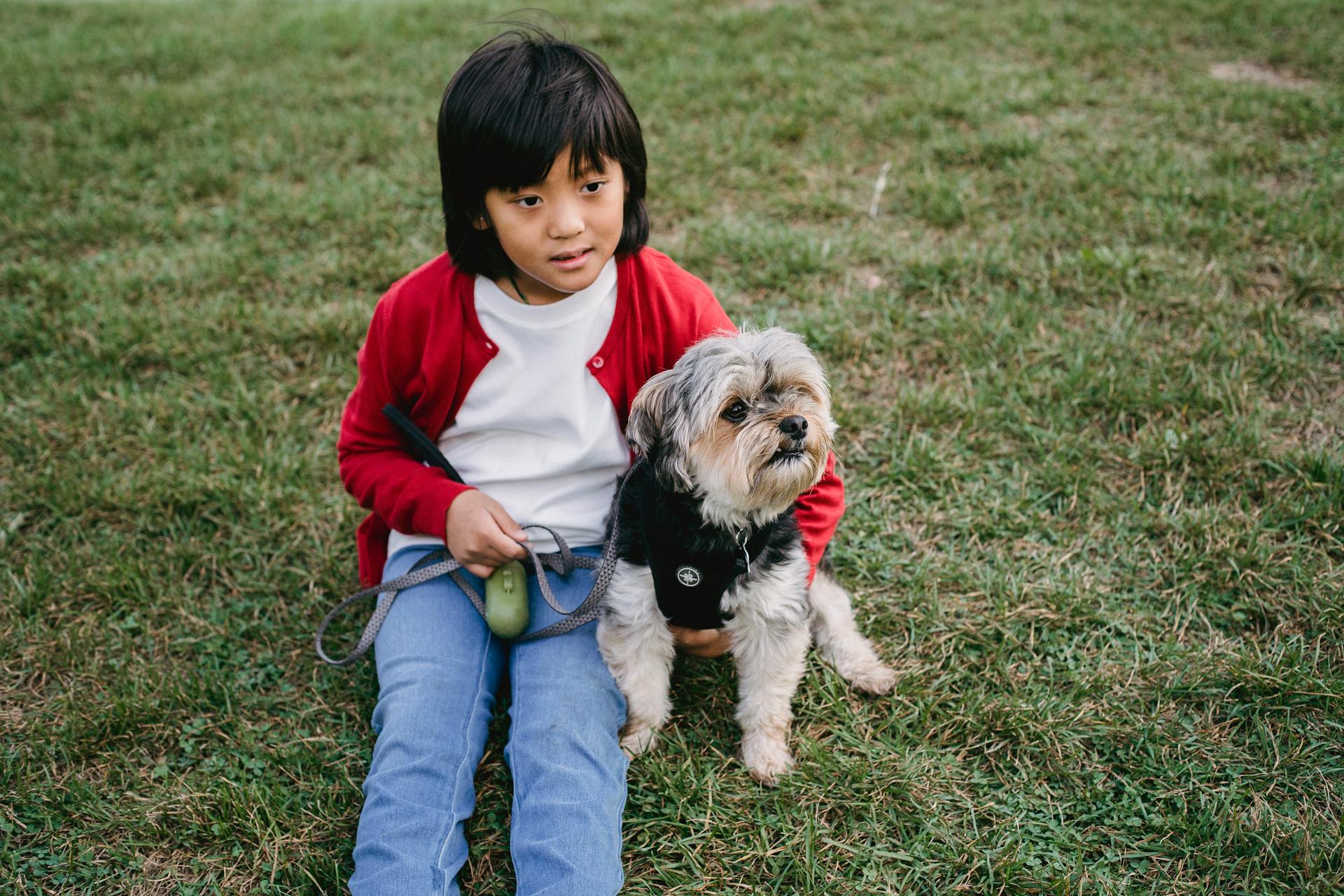
There are a number of different symptoms that can be indicative of constipation in dogs. These include straining to defecate, hard or dry stools, decreased frequency of defecation, or even the complete inability to defecate. Other signs that your dog may be constipated include crying or whining when trying to defecate, restlessness, and pacing. If your dog is constipated, you may also notice that he or she is trying to consume more non-food items such as grass, dirt, or rocks.
Constipation is often the result of a lack of fiber in the diet. It can also be caused by dehydration, certain medications, or conditions that cause the muscles in the bowel to contract inefficiently. elderly dogs are more susceptible to constipation due to age-related changes in muscle tone and motility. Obesity can also contribute to constipation, as can anatomic abnormalities such as a narrowed colon.
If your dog is constipated, there are a number of things you can do to help. First, make sure that he or she is drinking plenty of water. You can also add a small amount of canned pumpkin (not pie filling) or bran to your dog's food. If these measures do not help, your veterinarian may recommend a course of laxatives or enemas. In most cases, constipation is a fairly benign condition that can be easily resolved. However, if your dog is displaying other symptoms such as vomiting, diarrhea, weight loss, or lack of appetite, it is important to seek Veterinary care as soon as possible, as these could be indicative of a more serious underlying condition.
You might enjoy: Maximum Number
What are the causes of constipation in dogs?
The most common cause of constipation in dogs is an intestinal blockage. This can be caused by a variety of things including eating too much, not drinking enough water, eating something they shouldn't have, or a physical obstruction in the intestines. Other possible causes include dehydration, a lack of exercise, disorders of the digestive system, or side effects from certain medications.
If your dog is constipated, there are a few things you can do at home to help relieve their discomfort. Start by increasing their water intake and make sure they are getting plenty of exercise. You can also add a teaspoon of olive oil or pumpkin puree to their food, which can help to lubricate the intestines and make it easier for them to pass stool. If these home remedies don't work, or if your dog is showing other signs of illness, it's important to take them to the vet so they can be properly diagnosed and treated.
Additional reading: How to Exercise Your Bird?
How can you tell if your dog is constipated?
One way to tell if your dog is constipated is if he/she is having trouble having a bowel movement or is producing hard, dry stools. Your dog may also act uncomfortable, have a swollen abdomen, and give off a noticeable odor. If your dog is constipated, it is important to take him/her to the vet so they can determine the cause and give you the appropriate treatment.
A fresh viewpoint: Why Is My Rabbit Having Spasms?
What are the treatment options for constipation in dogs?
Constipation is a condition in which there is difficulty in passing stools or evacuation of the bowels. In dogs, it is defined as defecation that occurs less than once every two days and/or the passage of hard, dry stools that are difficult to expel. Constipation can be caused by a variety of factors including lack of exercise, a diet lacking in fiber, dehydration, gastrointestinal tract disorders, and certain medications.
The treatments for constipation in dogs will vary depending on the underlying cause. If constipation is due to lack of exercise, the dog will need to be given more opportunities to move around and get some exercise. If the constipation is due to a diet lacking in fiber, the dog's diet will need to be changed to include more fiber-rich foods such as vegetables, fruits, and whole grains. Adding more fiber to the diet can also be done by giving the dog a fiber supplement such as psyllium husk.
Dehydration is a common cause of constipation in dogs and can be easily remedied by increasing the dog's water intake. If the constipation is due to a gastrointestinal disorder, the underlying condition will need to be treated. Certain medications can cause constipation as a side effect and may need to be adjusted or discontinued.
In most cases, constipation in dogs can be treated at home with simple changes in diet and exercise. However, if the constipation is severe or persists despite home treatment, it is important to see a veterinarian as there may be an underlying medical condition causing the constipation.
You might like: Feed Dog Raw Diet
What is the prognosis for dogs with constipation?
Constipation in dogs is defined as the difficult passage of feces or the complete absence of feces. While constipation is a common problem in dogs, it can lead to more serious problems if left untreated. The most common causes of constipation in dogs are related to diet, lack of exercise, and dehydration. Treatment for constipation in dogs typically involves making dietary changes, increasing exercise, and giving fluids. In severe cases, medication may be necessary.
Diet is the most common cause of constipation in dogs. Dogs that eat a diet high in carbohydrates are more prone to constipation. This is because carbohydrates are not easily digestible and can lead to the formation of hard, dry feces. Dogs that eat a diet high in fiber are less likely to suffer from constipation. Fiber helps to add bulk to the stool and can make it easier to pass.
Lack of exercise is another common cause of constipation in dogs. Exercise helps to stimulate the digestive system and can help to prevent the formation of hard, dry feces. Dogs that do not get enough exercise are more likely to suffer from constipation.
Dehydration is another common cause of constipation in dogs. When the body is dehydrated, the stool can become hard and dry. This can make it difficult to pass. Dogs that are dehydrated may need to be given fluids IV to help rehydrate the body.
Treatment for constipation in dogs typically involves making dietary changes, increasing exercise, and giving fluids. In severe cases, medication may be necessary. Diet changes may include adding fiber to the diet or switching to a diet that is low in carbohydrates. Exercise should be increased gradually to help stimulate the digestive system. Fluids should be given to help keep the body hydrated. In severe cases, medication may be necessary to help soften the stool and make it easier to pass.
Worth a look: Dog Food for High Energy Dogs
Can raw food make your dog constipated?
There are a lot of opinions out there about whether or not raw food can make your dog constipated. Some people believe that raw food is the best option for their furry friend, while others believe that it could potentially lead to health problems down the road. So, what is the truth? Can raw food really make your dog constipated?
The answer isn't necessarily a simple yes or no. While there are a lot of benefits that come along with feeding your dog a raw diet, there are also some potential risks. One of those risks is constipation.
Constipation is a very common problem in dogs, and it can be caused by a variety of different things. For example, if your dog isn't drinking enough water, they may become constipated. Or, if they're eating a diet that's high in fat and low in fiber, that could also lead to constipation.
There are a few different theories out there about how raw food may contribute to constipation in dogs. One theory is that raw bones can actually cause constipation. This is because the bones can act as an obstruction in the digestive tract, and they can also lead to dehydration.
Another theory is that the high fat content in raw food can also lead to constipation. Fat is essential for a dog's diet, but too much fat can actually slow down the digestive process. This can lead to hard stools and constipation.
So, what does this all mean? Should you avoid feeding your dog raw food altogether?
Not necessarily. While there are some risks associated with raw food, there are also a lot of benefits. Raw food is packed with nutrients that are essential for your dog's health, and it can actually help to prevent constipation.
If you're concerned about the potential risks of raw food, there are a few things you can do to minimize those risks. For example, you can make sure that your dog is drinking plenty of water. You can also add some fiber to their diet, such as pumpkin or sweet potato.
If you do decide to feed your dog raw food, it's important to do your research and choose a high-quality product. There are a lot of different raw food diets out there, and not all of them are created equal. Make sure you're choosing a diet that's packed with nutrients and that doesn't contain any fillers or additives.
Ultimately,
Consider reading: What Kind of Dog Is Cannoli on B Positive?
What are the complications of constipation in dogs?
There are a number of complications that can arise from constipation in dogs. One of the most serious is that constipation can lead to an impaction, which is a blockage of the intestines. This can be a very serious condition and may require surgery to correct.
Other complications from constipation can include dehydration, electrolyte imbalances, and gastrointestinal issues such as vomiting and diarrhea. If constipation is left untreated, it can also lead to weight gain and other health problems.
If you think your dog is constipated, it is important to take him to the vet so that he can be diagnosed and treated properly. There are a number of different treatments for constipation, depending on the underlying cause. These can include changes in diet, increase in fiber, and medication.
For your interest: Treat Constipation
How can you prevent constipation in dogs?
There are a few things you can do to help prevent constipation in dogs:
1. Feed a high-fiber diet. This includes foods like pumpkin, sweet potatoes, and oatmeal.
2. Make sure your dog is getting enough water. A rule of thumb is to provide 1 ounce of water per pound of body weight per day.
3. Add a teaspoon of raw, unfiltered apple cider vinegar to your dog's water bowl.
4. Give your dog a probiotic supplement.
5. Encourage your dog to exercise regularly.
If your dog is already constipated, there are a few things you can do to help relieve the symptoms:
1. Give your dog a teaspoon of olive oil or coconut oil.
2. Give your dog a enema using lukewarm water.
3. Take your dog to the vet for a professional evaluation.
Broaden your view: How Many Horses per Acre in Michigan?
What should you do if you think your dog is constipated?
If you think your dog is constipated, the first thing you should do is take them to the vet. They will be able to give you a proper diagnosis and treatment plan. If constipation is the issue, there are a few things you can do at home to help alleviate the problem.
First, make sure your dog is drinking plenty of water. A constipated dog will often stop drinking as much water as they normally would because they are in pain. Adding a bit of water to their food may also help.
Next, you will want to add some fiber to their diet. This can be done by giving them a small amount of canned pumpkin (make sure it is pure pumpkin, not pie filling), adding a teaspoon ofMetamucil to their food, or giving them a small amount of bran.
Finally, you may need to give them a mild laxative. This should only be done under the guidance of your veterinarian as some laxatives can be dangerous if not used properly.
If you follow these steps and your dog is still constipated, please see your veterinarian as soon as possible as there may be an underlying medical condition causing the constipation.
Additional reading: Dogs Drinking
Frequently Asked Questions
Why is my dog constipated all the time?
As with people, constipation can be caused by a variety of factors including:• lack of exercise • incorrect diet • dysfunctional intestinal flora • parasites •asia or obstruction in the bowel due to a tumor, stones, or ...
Why is my dachshund constipated all the time?
There are a few possibilities why your dachshund is constipated all the time. A diet low in fiber, not drinking enough water, or not getting enough exercise can all lead to constipation. Some dogs also have loose stools due to various medical conditions or intestinal problems, and these may require professional assistance to be fixed.
How many times a day does a dog poop with constipation?
This varies depending on the size, weight, and age of the dog, but most dogs will poop between two and four times per day with constipation.
Is constipation common in elderly dogs?
Yes, constipation is more common in elderly dogs. This may be because their intestine muscles may be less elastic and they may have difficulty getting rid of excess fluid and feces. Additionally, many elderly dogs may have trouble walking or lying down because of reduced mobility.
How does the type of food affect dog constipation?
There is a correlation between the type of food fed to dogs and their propensity to develop constipation. Natural sources of fibre, such as fruits and vegetables, are beneficial for canine diets as they help to regulate bowel movements. In contrast, processed foods typically lack much fibre content and can contribute to constipation in dogs. What level of fibre should be included in dog food? A moderate level of about 20% of total calories should be provided from dietary fibre. Moderately high levels of fibre (>30% of total calories) have been shown to be more effective at preventing constipation in dogs than lower levels. So, the optimal amount of fibre varies depending on the specific needs of your pet. Some good choices include fresh fruits and vegetables, low-fat canned dog food, or whole grain bread products. Discuss with your veterinarian what is best suited for your dog's dietary needs.
Sources
- https://www.akc.org/expert-advice/health/dog-constipation/
- https://vetericyn.com/blog/what-are-the-signs-of-constipation-in-dogs/
- https://www.petmd.com/dog/symptoms/dog-constipation-causes-and-treatment
- https://www.sandiegobayanimalhospital.com/site/blog/2022/08/15/constipation-dogs-everything-know
- https://vetsofeasttexas.com/constipation-in-dogs/
- https://dogcentral.org/what-are-some-medical-causes-of-constipation-in-dogs/
- https://cheshireanimal.com/how-to-tell-if-your-dog-is-constipated/
- https://vetericyn.com/blog/how-to-treat-constipation-in-dogs/
- https://princeofdogs.news/canine-constipation-causes-prognosis-and-therapy/
- https://dogdiscoveries.com/health/-help-my-dog-hasnt-pooped-in-3-days
- https://www.k9sovercoffee.com/nutrition/why-is-my-dog-constipated-on-raw-dog-food/
- https://pethelpful.com/dogs/constipation-relief-for-dogs
- http://oa.aussievitamin.com/can-raw-food-make-my-dog-constipated/
- https://www.southwindvets.com/site/blog-southeast-memphis-vet/2022/04/30/dog-constipation
- https://iloveveterinary.com/blog/signs-of-constipation-in-dogs-what-to-look-out-for/
- https://topdogtips.com/dog-constipation/
- https://www.vettipet.com/dog-constipation/
- https://www.purina.com/articles/dogs/health/dog-constipation
Featured Images: pexels.com


